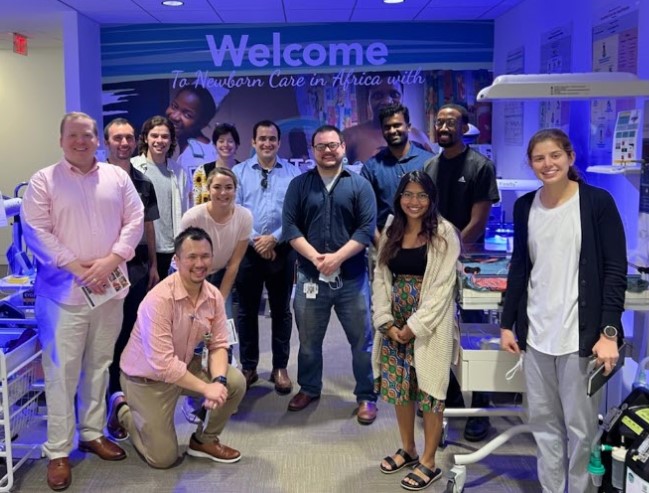Clinical Services
PICU Subspecialty Expertise
The Critical Care Team serves the sickest of sick patients, so they must be well versed in treating a variety of conditions at a moment’s notice. They identify patient needs and connect them to specialized care. Areas of subspecialty expertise include, but are not limited to: cardiovascular surgery, congenital heart disease, pulmonology, hematology, oncology, neurocritical care, neurosurgery, gastroenterology, transplant medicine, and trauma. Advanced treatment modalities are also available in the PICU, such as invasive and non-invasive ventilation with access to high-frequency oscillatory ventilation; hyperbaric oxygen therapy; inhaled nitric oxide gas therapy; continuous renal replacement therapy; and extracorporeal membrane oxygenation for neonatal and pediatric respiratory and cardiac failure.

Pediatric Critical Care Transport Team
This team is also responsible for transporting medically fragile patients to Children’s Memorial Hermann, the premiere Level I Trauma Center in the area. As the birthplace of Life Flight hospital-based air medical transport service, Memorial Hermann has achieved mastery at safe and effective patient transport. In addition to physicians, the Transport Team is composed of at least one transport nurse as well as a respiratory therapist to ensure a well-rounded approach and positive outcomes. Fellows can also rotate through the Transport Team as a ride-along or elective rotation, however, those options are solely available with ground transport.
Visiting Scholars Program
Pediatric Critical Care is honored to be part of the UTHealth Houston Visiting Scholars Program. Individuals who hold a high school or higher degree with an interest in a health care-related field and are seeking to observe (i.e., only to shadow, watch, and listen; no hands-on activities allowed) Pediatric Critical Care physicians may apply for the UTHealth Houston Observership Program. It is important to note that:
- Observers cannot provide clinical care, cannot perform any patient care, and cannot participate in or perform research, data collection, or any other hands-on activities
- applications require a minimum of 12 weeks to process
Please contact the Visiting Scholars Program directly to learn more and apply for this transformative experience.